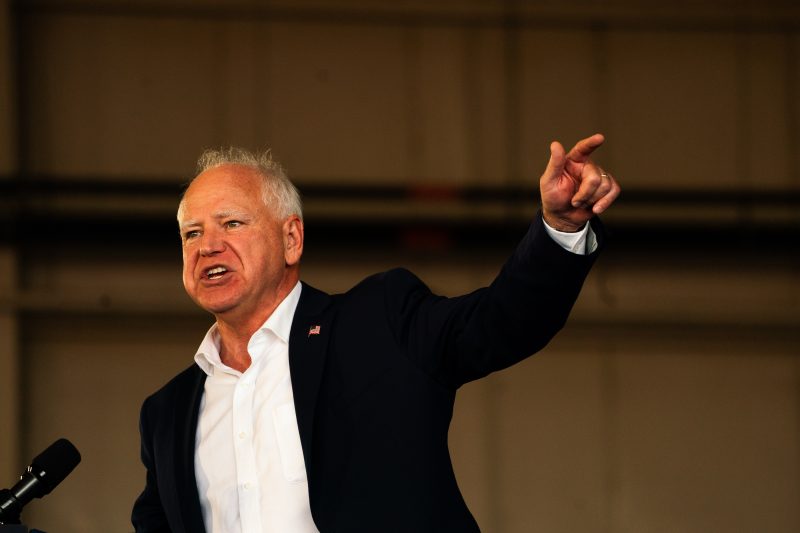Article:
Rumors and misinformation often tend to distort reality, and public figures are usually the primary targets. One such public figure is Tim Walz, the Governor of Minnesota. Recently, questions have arisen regarding his military service and the validity of his claims about his role in the military. Although it is easy to feed into the rumors, it is vital for us to assess them critically. To achieve this, we will delve into Tim Walz’s military record and juxtapose it with the circulating claims to gauge the veracity of the allegations.
The claim in question revolves around Walz’s military service era, specifically referring to his service in Italy during Operation Allied Force. It was alleged he was not in Italy but rather, participated remotely from Minnesota. These claims pose questions about the nature of his military service, intending to undermine his credibility as a figure of authority.
Walz served in the National Guard for about 24 years, a fact that is irrefutable and widely documented. He enlisted into the Guard in 1981 and carried a distinguished service until his retirement in 2005. During his time of service, he had several deployments under his belt. Among these deployments was Operation Allied Force, a NATO-led initiative in 1999. Walz was an integral part of this operation, serving in support of this mission. The exact roles and duties of soldiers often differ based on their functions and the needs of the operation. Therefore, while Walz might have been in Minnesota during some parts of the operation, his role was no less crucial to the mission’s success.
The military command structure allows for various roles, both on the ground and at home. Rooting from this perspective, Walz’s participation in Operation Allied Force from Minnesota shouldn’t be undervalued or belittled. Even if he didn’t serve on the actual battleground, taking part in strategic planning and logistics at home is as valuable a contribution as being on the field.
Moreover, Walz’s military record speaks for itself beyond Operation Allied Force. His service in the National Guard was characterized by leadership roles, including serving as the Command Sergeant Major for the 34th Infantry Division. His experiences and expertise have undoubtedly shaped his political career, influencing much of his decision-making as Governor.
Accusations about Walz’s military service may continue to circulate, but it is critical to critically analyze these claims and consider their sources. Many of these rumors stem from political motivations and are geared towards tarnishing Walz’s image. In the face of these allegations, it is prudent to recall the ethos of every military institution around the world – ‘service before self.’
Walz’s military service reflects his commitment to the nation. The time he devoted to serving in the National Guard portrays him as a figure who places public service above personal interests. The doubt cast on his military service is counterproductive and disregards the immense dedication and sacrifice synonymous with military service.
Therefore, twisting the tale of his service in Italy during Operation Allied Force fails to achieve anything more than creating unnecessary controversies. Duly noted, it’s essential to approach such topics armed with knowledge and a keen sense of discernment to distinguish facts from far-fetched narratives.
Every service person, whether on the front lines or operating from the rear, plays an integral part in the overall mission’s success. Walz’s military service is no different, and his contributions, regardless of where they were made from, should be acknowledged and respected. His subsequent transition into a political role further underscores his unwavering commitment to serve his country, dealing with issues that span beyond the battleground, extending to policies that influence the lives of millions. Assessment of Walz’s military service and assessment of these claims should be done with bridled objectivity and respect for the sanctity of service.
